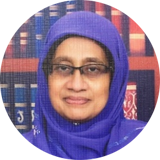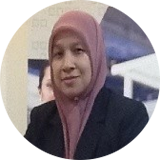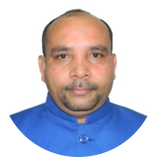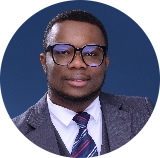Invited Speakers

Prof. Shuai Wang, University of Electronic Science and Technology of China, China
Biography: Shuai Wang received the PhD degree from the School of Science and Engineering, The Chinese University of Hong Kong, Shenzhen, China, in 2021. He is currently an assistant professor at the University of Electronic Science and Technology of China. Before that, he was a postdoctoral research fellow with the Information Systems Technology and Design Pillar, Singapore University of Technology and Design, Singapore. His current primary research interests include optimization algorithms for signal processing, machine learning and communication systems, distributed optimization and federated learning (FL), data security and privacy protection in distributed systems, integrated sensing and communication (ISAC), etc. He has published more than 30 academic papers and serves as the Youth Editorial Board Member of two journals, and the session chair of ICCT 2025.
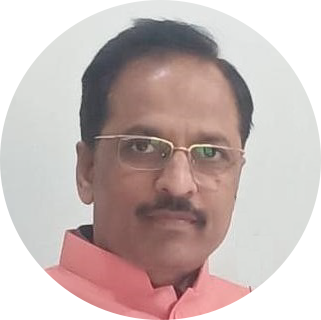
Prof. R. S. Hegadi, Central University of Karnataka, India
Biography: Prof. Ravindra Hegadi received his PhD in Computer Science from Gulbarga University, India. Dr Hegadi has served in various positions at institutions of higher education since 1997, and is currently Professor and Dean of Academics at Central University of Karnataka, India. He has brought research projects worth more than 5 crores. His research interests include Digital image processing, AI, Machine learning, Robotics, and Medical image analysis. He served as Dean of the School of Computer Science. Dr Hegadi is a Senior Member of IEEE and has received the Prof. Satish Dhawan Young Scientist Award from the Government of Karnataka.
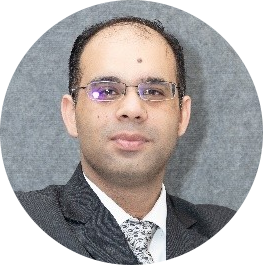
Prof. Anand Nayyar, Duy Tan University, Vietnam
Biography: Dr. Anand Nayyar received Ph.D (Computer Science) from Desh Bhagat University in 2017 in the area of Wireless Sensor Networks, Swarm Intelligence and Network Simulation. He is currently working in School of Computer Science-Duy Tan University, Da Nang, Vietnam as Professor, Scientist, Vice-Chairman (Research) and Director- IoT and Intelligent Systems Lab. A Certified Professional with 280+ Professional certifications from CISCO, Microsoft, CompTIA, Amazon, Alibaba Cloud, Oracle, Google, Salesforce, Tableau, FinOps, Beingcert, EXIN, GAQM, Cyberoam and many more. Published more than 300+ Research Papers in various High-Quality ISI-SCI/SCIE/SSCI Impact Factor- Q1, Q2, Q3, Q4 Journals cum Scopus/ESCI indexed Journals, 80+ Papers in International Conferences indexed with Springer, IEEE and ACM Digital Library, 60+ Book Chapters in various SCOPUS/WEB OF SCIENCE Indexed Books with Springer, CRC Press, Wiley, IET, Elsevier with Citations: (Google Scholar): 23000+, H-Index: 77 and I-Index: 314; (Scopus): 13000+; H-index: 60. Member of more than 60+ Associations as Senior and Life Member like: IEEE (Senior Member) and ACM (Senior Member). He has authored/co-authored cum Edited 70+ Books of Computer Science. Associated with more than 600+ International Conferences as Programme Committee/Chair/Advisory Board/Review Board member. He has completed 1 Grassroot and 1 ASEAN Project. He has 18 Australian Patents, 16 German Patents, 4 Japanese Patents, 44 Indian Design cum Utility Patents, 13 UK Patents, 1 USA Patent, 3 Indian Copyrights and 2 Canadian Copyrights to his credit in the area of Wireless Communications, Artificial Intelligence, Cloud Computing, IoT, Healthcare, Drones, Robotics and Image Processing. He has guided more than 200+ Undergraduate Students (B.S. Degree), 30 MCA, 7 M.S. Students and completed 1 Ph.D Student and currently 3 Ph.D Scholars are working under him. He has completed 4 Research Grants Projects including 1 ASEAN and 1 Glocal 30 Project and 1 Grassroot Project in DTU. Awarded 56 Awards for Teaching and Research—Young Scientist, Best Scientist, Best Senior Scientist, Asia Top 50 Academicians and Researchers, Young Researcher Award, Outstanding Researcher Award, Excellence in Teaching, Best Senior Scientist Award, DTU Best Professor and Researcher Award- 2019, 2020-2021, 2022, 2022-2023, 2023-2024, Distinguished Scientist Award by National University of Singapore, Obada Prize 2023, Lifetime Achievement Award 2023, 2024; Asian Admirable Achievers 2024; Distinguished Academic Leader 2024, Lifetime Achievement Award 2024 and many more.
He is listed in Top 2% Scientists as per Stanford University (2020, 2021, 2022, 2023, 2024, 2025), Ad Index (Rank No:1 Duy Tan University, Rank No:2 Computer Science in Viet Nam) and Listed on Research.com (Top Scientist of Computer Science in Viet Nam- National Ranking: 2; D-Index: 56; World Ranking: 3694).
He is acting as Associate Editor for Computer Communications (Elsevier), International Journal of Sensor Networks (IJSNET) (Inderscience), Tech Science Press- IASC, Cogent Engineering, Human Centric Computing and Information Sciences (HCIS), IEEE Transactions on Artificial Intelligence (IEEE TAI), Indonesian Journal of Electrical Engineering and Computer Science, IJFC, IJISP, IJDST, IJCINI, IJGC, IJSIR, IJBDCN, IJNR, IJSI, IJIES. He is acting as Managing Editor of IGI-Global Journal, USA titled “International Journal of Knowledge and Systems Science (IJKSS)”. He has reviewed more than 5700+ Articles for diverse Web of Science and Scopus Indexed Journals. He is currently researching in the area of Wireless Sensor Networks, Internet of Things, Swarm Intelligence, Cloud Computing, Artificial Intelligence, Drones, Blockchain, Cyber Security, Healthcare Informatics, Big Data and Wireless Communications.

Assoc. Prof. Dr. Azhar Imran Mudassir, Beijing University of
Technology, China
Speech Title: Explainable Deep Learning for
Medical Image–Based Disease Diagnosis
Abstract: Advances in
machine learning and deep learning have revolutionized medical image
analysis, enabling accurate and automated disease diagnosis. This
talk presents recent developments in deep learning models for medical
image–based diagnosis, highlighting convolutional neural networks and
vision transformer architectures. Special emphasis is placed on
explainable AI techniques that enhance model transparency and
clinical trust. Key challenges, including limited labeled data, model
generalization, and ethical concerns, are discussed along with
emerging solutions such as transfer learning and self-supervised
learning. The talk concludes with future research directions and
opportunities for deploying reliable deep learning systems in
real-world healthcare applications.
Biography: Azhar Imran
Mudassir received his PhD in Software Engineering from Beijing
University of Technology, China, and his Master’s degree in Computer
Science from the University of Sargodha, Pakistan. He is currently an
Associate Professor in Computer Science, with research and teaching
focused on machine learning and deep learning–based image analysis.
Dr. Mudasir has over 13 years of national and international academic
experience. His research interests include medical image analysis,
machine learning, deep learning, explainable AI, healthcare
informatics, and social media analytics. He has published more than
100 research articles in well-reputed international journals and
conferences and actively serves as an editorial board member and
reviewer for several SCI- and Scopus-indexed journals, including IEEE
Access and MDPI journals. He is a regular member of IEEE and has
contributed to numerous international conferences as a keynote
speaker, invited speaker, session chair, and technical committee
member.

Assoc. Prof. Thanapong Intharah, Khon Kaen
University, Thailand
Speech Title: Harnessing Artificial Intelligence for Enhanced
Screening of Regional Health Problems
Abstract:
Opisthorchiasis and cholangiocarcinoma are significant public health
concerns in Southeast Asia, requiring effective screening methods for
early detection and management. This talk focuses on two innovative
AI-powered platforms, OV-RDT and BiTNet, which aim to revolutionize
the screening process for these regional diseases.
The OV-RDT
platform utilizes AI algorithms to analyze images of the OV-Rapid
Diagnostic Test, a urine-based test for opisthorchiasis. By
automating the interpretation of test results and real-time data
analytic dashboard, the OV-RDT platform improves the accuracy and
efficiency of screening, reducing the reliance on skilled technicians
and enabling broader access to testing in resource-limited settings.
BiTNet, on the other hand, is an AI-driven platform that analyzes
ultrasound images to detect early signs of cholangiocarcinoma and
other biliary tract abnormalities. Trained on a large dataset of
annotated images, BiTNet employs deep learning techniques to identify
subtle changes and patterns associated with the disease, assisting
medical professionals in making accurate diagnoses.
The talk will
present the development and validation of these platforms and their
potential impact on enhancing regional disease screening. We will
discuss how OV-RDT and BiTNet can be integrated into existing
healthcare systems, enabling remote screening and telemedicine
applications. Furthermore, we will highlight the collaborative
efforts between researchers, healthcare professionals, and AI experts
to ensure the responsible deployment and continuous improvement of
these AI-powered tools.
By leveraging the capabilities of OV-RDT
and BiTNet, we can significantly enhance the accessibility, accuracy,
and efficiency of screening for opisthorchiasis and
cholangiocarcinoma. These platforms have the potential to transform
the landscape of regional disease management, ultimately improving
patient outcomes and public health in affected communities.
Biography: Thanapong Intharah received his
PhD in Computer Science from University College London (UCL), United
Kingdom. Prior to his doctoral studies, he earned an MSc in Machine
Learning from UCL and an MSc in Computer Science from Chulalongkorn
University. Dr. Intharah is currently an Associate Professor in the
Department of Statistics, Faculty of Science at Khon Kaen University.
His research interests include computer vision, machine learning, deep
learning, human-machine interaction, artificial intelligence, and cloud
computing with specialized applications in healthcare and medical
diagnostics. Dr. Intharah's research focuses on developing AI-powered
medical diagnostic systems, including the BiTNet platform for
ultrasound image analysis of cholangiocarcinoma risk groups and upper
abdominal abnormalities, portable AI-ultrasound systems with
tele-ultrasound capabilities, and the OV-RDT intelligence platform for
opisthorchiasis screening. In 2020, he was awarded the Leaders in
Innovation Fellowships by the Royal Academy of Engineering.
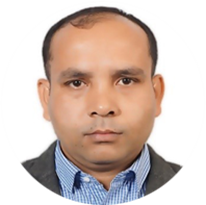
Prof. Moirangthem Marjit Singh, North Eastern Regional Institute of Science & Technology (NERIST), Arunachal Pradesh, India
Biography: Dr. Moirangthem Marjit Singh is a
Professor in Computer Science & Engineering Department at North Eastern
Regional Institute of Science & Technology (NERIST), Arunachal Pradesh,
India. He received B.Tech. & M.Tech. degrees from NERIST and PhD degree
from University of Kalyani, India in 2001,2010 and 2017 respectively.
He was the Head of Department Computer Science & Engineering, NERIST
(2018 – 2022), founder Honorary Joint Secretary of the IE(I), Arunachal
Pradesh State Centre, India (2019-2021) and founder member Unnat Bharat
Abhiyan NERIST Cell (2017-2024). Currently, he is In-charge of
Educational Technology Cell at NERIST, Chief Information Security
Officer (CISO) NERIST and Single Point of Contact (SPoC) for National
Institute of Electronics and Information Technology (NIELIT, Ministry
of Electronics and IT, Govt. of India) Itanagar Centre at NERIST. He is
a Fellow of IETE India, Fellow of IE (I) and senior member IEEE, USA.
He is an Editor of IETE- Journal of Research published by Taylor &
Francis.
Prof. Marjit was honoured with “Academic Excellence Award”
by Taylor’s University, Malaysia in recognition of his outstanding
academic performance on 13 September 2023. He received the “IE(I) Young
Engineers Award 2014–2015” in Computer Engineering Division from
Institution of Engineers, India. He also received the “Best Paper
Awards” at international conferences namely the ICEAI 2023(Taylors’
University, Malaysia), the SETSM 2025(Hanoi University of Industry,
Vietnam) the ICACCT 2016, (APIIT, India) and Best Paper Award 1st
Runner-Up in ICDAI2024(TINT, India).
Prof. Marjit did his schooling
at JNVSA Kakching, Thoubal District, Manipur (1990-1997). He secured
First Position in X and Second Position in XII Examinations conducted
by CBSE, New Delhi, India, amongst the candidates sent up from Jawahar
Navodaya Vidyalayas (JNVs) of North Eastern region states of India, in
1995 and 1997 respectively. He was felicitated as one of the Eminent
Alumni (JNVs of North Eastern Region India) by Navodaya Vidyalaya
Samiti Regional Office Shillong, Ministry of Education, Govt. of India
on 22 April 2023 at JNV Rangia, Assam. He was Gold Medallist in the
M.Tech.(CSE) program too.
Prof. Marjit has a patent granted for 20
years by the Patents office Govt. of India with effect from 30 July,
2021(Patent Number:542853). He has published several papers in
international journals, book chapters and conferences of repute. He has
been associated with many technical conferences held in India and
abroad. He has delivered many technical/invited talks as well. His
research interests include MaNet, WSN, Security, ML, DL and Image
Classification.
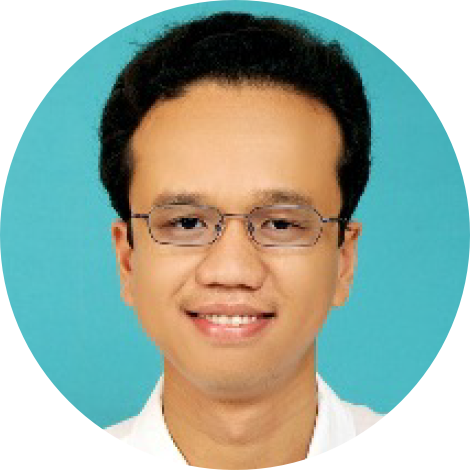
Prof. Loc Nguyen, Sunflower Soft Company, Vietnam
Biography: Loc Nguyen is an independent scholar from 2017. He holds Master degree in Computer Science from University of Science, Vietnam in 2005. He holds PhD degree in Computer Science and Education at Ho Chi Minh University of Science in 2009. His PhD dissertation was honored by World Engineering Education Forum (WEEF) and awarded by Standard Scientific Research and Essays as excellent PhD dissertation in 2014. He holds Postdoctoral degree in Computer Science from 2013, certified by Institute for Systems and Technologies of Information, Control and Communication (INSTICC) by 2015. Now he is interested in poetry, computer science, statistics, mathematics, education, and medicine. He serves as reviewer, editor, speaker, and lecturer in a wide range of international journals and conferences from 2014. He is volunteer of Statistics Without Borders from 2015. He was granted as Mathematician by London Mathematical Society for Postdoctoral research in Mathematics from 2016. He is awarded as Professor by Scientific Advances and Science Publishing Group from 2016. He was awarded Doctorate of Statistical Medicine by Ho Chi Minh City Society for Reproductive Medicine (HOSREM) from 2016. He was awarded and glorified as contributive scientist by International Cross-cultural Exchange and Professional Development-Thailand (ICEPD-Thailand) from 2021 and by Eudoxia Research University USA (ERU) and Eudoxia Research Centre India (ERC) from 2022. He has published 101 papers and preprints in journals, books, conference proceedings, and preprint services. He is author of 5 scientific books. He is author and creator of 10 scientific and technological products.

Assoc. Prof. Pavel Loskot, ZJU-UIUC Institute, China
Speech Title: Mathematical Models Beyond Vectors and Matrices
Abstract: The vast majority of contemporary computational models are built as low-level primitive arithmetic operations over elements of vectors and matrices. Such models are universal, but their downside is that they numerically very expensive, and require large computational resources. In many practical scenarios, it is useful to adopt more abstract models that can effectively describe systems and the underlying phenomena without requiring excessive computational resources, and while naturally offering interpretability. In this talk, I will survey fundamental mathematical concepts and objects that are useful in building these abstract models including the key ideas in abstract algebra, set theory, algebraic geometry and topology, and their applications in topological data analysis and geometric machine learning.
Biography: Pavel Loskot received his PhD in Wireless Communications from the University of Alberta, Canada. Before he joined the ZJU-UIUC Institute, he was 14 years a Senior Lecturer at Swansea University, UK. In the past 30 years, he was involved in numerous collaborative research and development projects, and also held a number of paid consultancy contracts with industry. His research interests focus on mathematical and probabilistic modeling, statistical and digital signal processing, and machine learning for multi-sensor, tabular, and longitudinal data. He is the Senior Member of IEEE, the Member of ACM, a Fellow of the HEA, UK, the Recognized Research Supervisor of the UKCGE, and the IARIA Fellow. He serves as the Editor in ICT Express and Frontiers in Genetics.
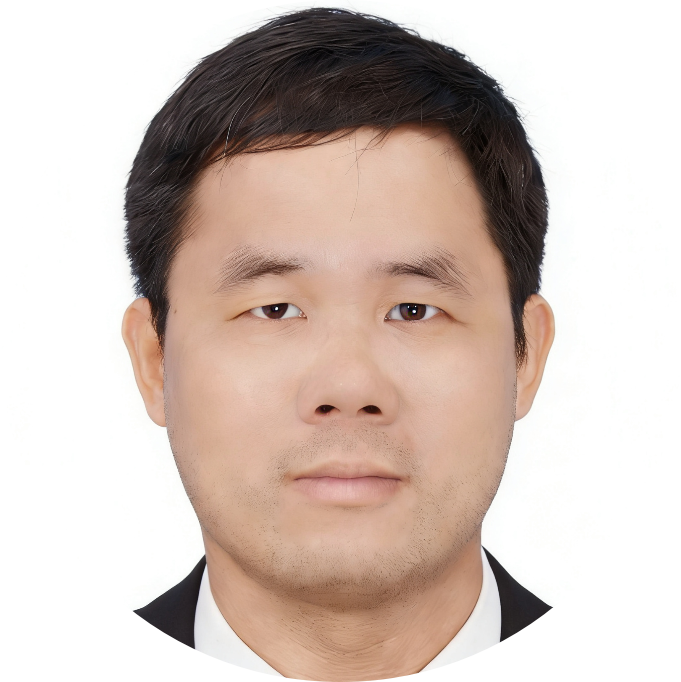
Assoc. Prof. Xiaohua Zhang, Wenzhou Business College, China
Biography: Xiaohua Zhang is a computing educator and senior engineer, holding professional credentials including Associate Professor, Information System Project Manager, and First-Class Constructor (Mechatronics). He is also a member of Zhejiang Government Procurement Review Expert Database and Wenzhou’s second batch of Educational Technology Project Experts. Boasting rich cross-sector experience, he has served in key roles at China State Construction International Engineering Co., Ltd., Huanghe Science and Technology College’s Artificial Intelligence Research Institute, and Hangzhou Kehong Network Technology Co., Ltd.—forging a strong link between academic theory and industrial practice. Currently with Wenzhou Business University’s Computer Science Department, he teaches core courses like Python Data Analysis and Applied Statistics, focusing on project-driven learning. As principal investigator, he has led over 10 national, provincial, and municipal projects, including the Ministry of Education’s Industry-University Cooperation Program.
His achievements include 20+ academic papers, 50+ utility model patents and software copyrights, and 2 new-form computer textbooks for higher education. He has served as Session Chair for IEEE conferences like ACMLC 2025 (Hong Kong) and ICAISE 2025 (Yokohama), solidifying his influence in “cloud + AI + education”.
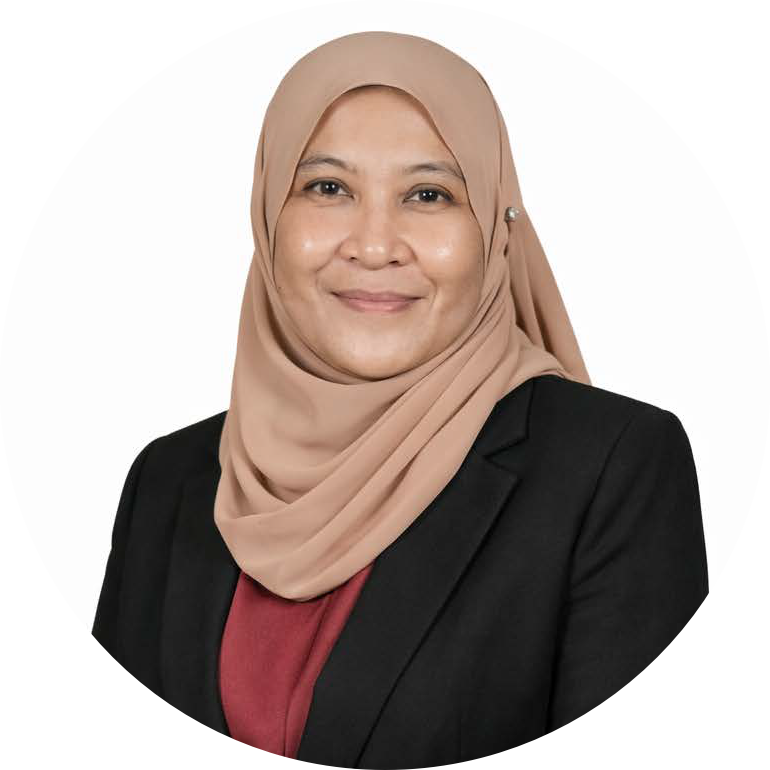
Assoc. Prof. Suraya Masrom, Universiti Teknologi MARA, Malaysia
Speech Title: Automated Machine Learning based
on Genetic Programming
Abstract: Machine learning (ML) has
become a foundational technology underpinning advancements
across a
wide range of application domains, including healthcare, finance,
manufacturing, and environmental analytics. Despite its widespread
adoption, developing high-performance ML models remains a complex and
resource-intensive process that requires expertise in data
pre-processing, algorithm selection, and hyperparameter optimization.
These tasks involve iterative experimentation and substantial technical
effort, which often limits effective participation by domain
specialists and applied researchers who lack
advanced programming or ML expertise. While many rapid software provide
intuitive graphical environments for machine learning modeling, the
support for Genetic Programming–based Automated Machine Learning
(GP-AutoML) remains limited. Moreover, systematic understanding of
GP-AutoML system performance behavior across different execution
environments is still lacking.
To address these gaps, a new
web-based visual modeling environment that utilizes GP-AutoML based on
Python TPOT framework has been developed. A unified normalized
evaluation framework to characterize the performance of GP-AutoML
implemented with the proposed visual modeling system from the aspects
of scalability, accuracy, and robustness will be presented.
Biography: Associate Professor Ts. Dr. Suraya Masrom is the head of
Machine Learning and Interactive Visualization (MaLIV) Research Group
at Universiti Teknologi MARA (UiTM) Perak Branch. She received her
Ph.D. in Information Technology and Quantitative Science from UiTM in
2015. She started her career in the information technology industry as
an Associate Network Engineer at Ramgate Systems Sdn. Bhd. (a
subsidiary of DRBHICOM) in June 1996 after receiving her bachelor’s
degree in computer science from Universiti Teknologi Malaysia (UTM) in
Mac 1996. She started her career as a lecturer at UTM after receiving
her master’s degree in Computer Science from Universiti Putra Malaysia
in 2001. She transferred to the Universiti Teknologi MARA (UiTM), Seri
Iskandar, Perak, Malaysia, in 2004. She is an active researcher in the
meta-heuristics search approach, machine learning, and educational
technology. She can be contacted through email at suray078@uitm.edu.my.

Asst Prof. Yanglong Lu, The Hong Kong University of Science and Technology, China
Biography: Prof. Lu currently serves as an Assistant Professor in the Department of Mechanical and Aerospace Engineering at the Hong Kong University of Science and Technology. He obtained his Bachelor's and Doctoral degrees in Mechanical Engineering from the Georgia Institute of Technology in 2016 and 2020, respectively. Following that, he worked as a Postdoctoral Researcher at the University of Michigan, Ann Arbor, for one year. His research focuses on additive manufacturing process monitoring, multiphysics field simulation, machine fault diagnosis, and structural optimization. He has published about 40 research papers in renowned international journals and conferences and has filed four US patents. He has served as Session Chair and Technical Committee at well-known international academic conferences such as ASME-IDETC, MSEC/NAMRC, and IISE. He has received several awards, including the Best Doctoral Dissertation Award and Best Conference Paper Award from ASME-CIE, finalist in the 2023 US National Science Foundation Manufacturing Blue Sky Competition, the Postdoctoral Association Conference Award from the University of Michigan, and the Poster Competition Award from ASME Manufacturing and Lifecycle Design Conference, among others. Additionally, he co-founded SolCharged Solar Energy Company in 2016. Currently, he is leading projects funded by University Grants Committee (Hong Kong), Innovation and Technology Commission (Hong Kong), and the Hong Kong University of Science and Technology-Industry Collaboration Center, National Science Foundation of China, among others.
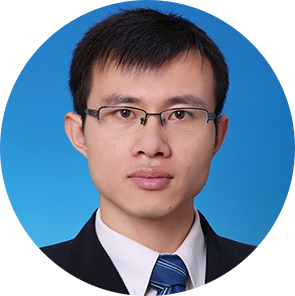
Asst. Prof. Yiwei Li, Xiamen University of Technology, China
Biography: Yiwei Li received his Ph.D. degree from National Tsing Hua University, Hsinchu, Taiwan, in 2024. He is currently an Assistant Professor at Xiamen University of Technology. Before that, he was a Visiting Ph.D. Student at The Chinese University of Hong Kong, Shenzhen, from September 2019 to February 2022, and a Research Assistant at the Quanzhou Institute of Equipment Manufacturing, Chinese Academy of Sciences, from April 2015 to August 2017. His research interests include distributed optimization, federated learning, data security and privacy protection, and machine learning for wireless communications. He is a Senior Member of IEEE and has served as a TPC member for several flagship international conferences, including IEEE VTC and IJCNN. He has published more than 30 academic papers, serves as a Youth Editorial Board Member of the journal AIAS, and is a session chair for ICCT 2025.

Asst Prof. Yanqing Xu, The Chinese University of Hong Kong, Shenzhen, China
Biography: Yanqing Xu received the Ph.D. degree in communication and information system from the State Key Laboratory of Rail Traffic Control and Safety, Beijing Jiaotong University, Beijing, China, in 2019. He was a senior engineer with Huawei Technologies Company Ltd., from July 2019 to July 2020. From September 2020 to August 2022, he was a PostDoc researcher with The Chinese University of Hong Kong, Shenzhen, where he is currently working as a research assistant professor. He is also with the Shenzhen Research Institute of Big Data. Dr. Xu’s current research interest lies in machine learning and signal processing algorithm designs and their applications for wireless communication systems. Dr. Xu served as a special session co-organizer and chair in IEEE SPAWC 2024. He was a recipient of the Shenzhen Overseas High-Caliber Personnel, and the Top 3% Paper Recognition of the IEEE ICASSP 2023. Several of his research outcomes have been successfully deployed in Huawei’s base stations, for which he has received the Huawei Technical Cooperation Achievement Transformation Award (1st Prize) in 2024, the Huawei Wireless Product Line Outstanding Technical Cooperation Project Award in 2024, and the Huawei Technical Cooperation Achievement Transformation Award (2nd Prize) in 2022. He is currently serving as the Deputy Editor of IEEE Transactions on Signal and Information Processing over Networks and an Associated Editor of EURASIP Journal on Wireless Communications and Networking. He is a member of the IEEE.
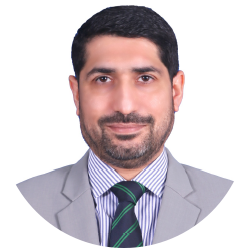
Asst. Prof. Muhammad Shahid
Khan, Suan Sunandha Rajabhat University, Thailand
Biography: Dr. Muhammad Shahid Khan is an accomplished academic and researcher with a Ph.D. in Management and over a decade of post-doctoral teaching and industry experience. Currently serving as a Lecturer at Suan Sunandha Rajabhat University (Thailand) and a Visiting Professor at ABA Teachers College and Sanmenxia Polytechnic College (China), he has also held key roles in international diplomacy and industry collaboration, including work with the Pakistan High Commission in Kuala Lumpur. With a strong research portfolio, Dr. Khan has authored 70+ publications in peer-reviewed journals and conference proceedings, including SSCIindexed and high-impact factor publications. His research expertise spans Innovative Management, Sustainable Business, Environmental Sustainability, Knowledge Management, and Green HRM, contributing to both academic scholarship and practical industry applications.

Dr. Chiagoziem Chima Ukwuoma, Chengdu University of Technology, China
Biography: Dr. Chiagoziem Chima Ukwuoma is an AI researcher and computing educator specializing in trustworthy artificial intelligence, attention-based deep learning, and sustainable machine learning with applications in healthcare, renewable energy, and remote sensing. He earned his Ph.D. in Software Engineering from the University of Electronic Science and Technology of China (UESTC) in 2023 and currently serves as a Lecturer and Module Leader at Chengdu University of Technology, Oxford Brookes College, where he leads large-cohort courses in Computing Systems and Secure Operating Systems. He has published over 50 peer-reviewed papers in high-impact journals such as Renewable Energy, Applied Energy, and the Journal of Advanced Research, accumulating over 1,500 citations and achieving an h-index of 21. He mentors undergraduate, master’s, and doctoral students, and he runs a free global Machine Learning & Computer Vision bootcamp that trains over 120 learners each cycle. His work bridges methodological rigor with societal impact, aligning strongly with priorities in health data science, data ethics, and sustainable AI. Dr. Ukwuoma’s scholarship, teaching excellence, and mentorship reflect his commitment to improving AI systems while broadening access to high-quality computing and data science education worldwide.

Dr. Zichi Wang, Shanghai University, China
Speech Title: Steganography in Neural Networks
Abstract: Steganography aims to achieve covert communication by hiding secret data into a normal cover and transmitting it over a public channel, which is significant for national information security. Traditional steganography transmits secret data through multimedia such as image, audio and video. Neural network model is a new type of data which grows rapidly in recent years and is widely used. Steganography for neural network models is an emerging research field that needs to be developed. Compared with multimedia, neural network model has complex structure, wide variety and large number of parameters. For this reason, traditional steganographic methods cannot be used for neural network model directly. This speech will discuss the secure steganography for neural network models.
Biography: Zichi Wang received the BS degree in electronics and information engineering from Shanghai University, China, in 2014, and received the MS degree in signal and information processing in 2017, the PhD degree in information and communication engineering from the same university in 2020. He is currently with the School of Communication and Information Engineering, Shanghai University, Shanghai, as an Associate professor. His research interests include steganography, steganalysis, and artificial intelligence security. He has published over 100 papers in these areas. He has served as a TPC member for several international conferences, including ICECI 2022 and AAIP 2025.


